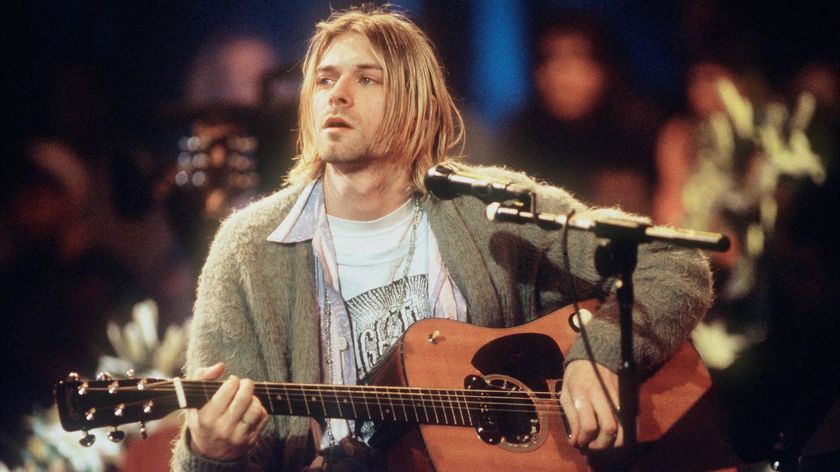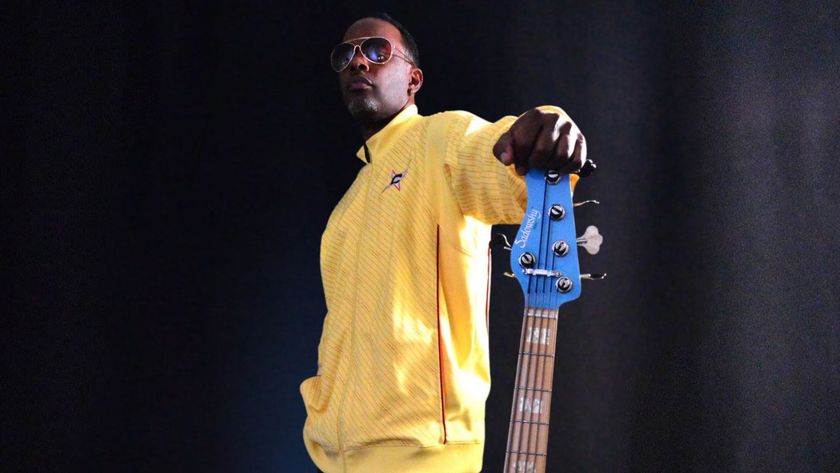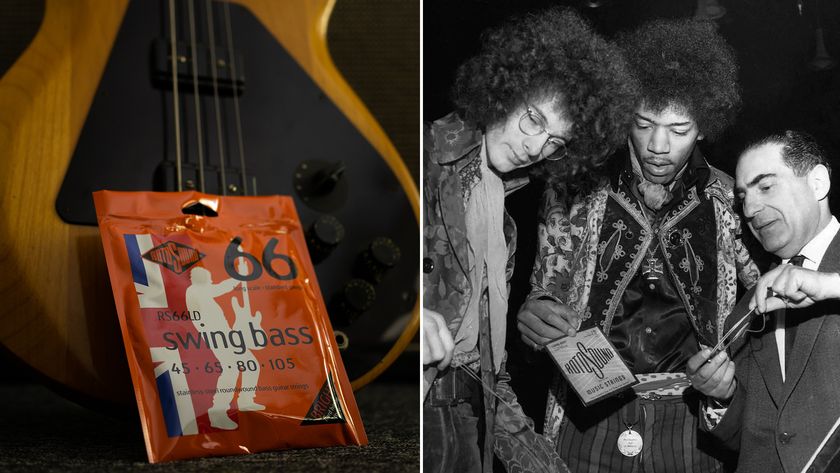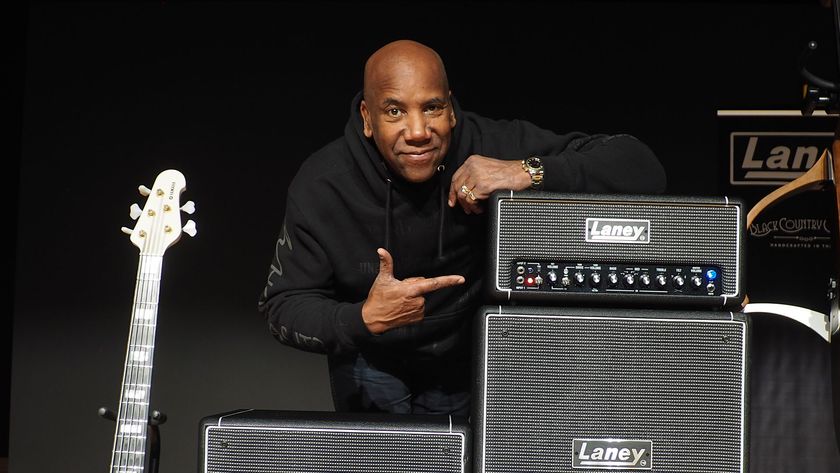Thoughts on Downsizing Your Gear
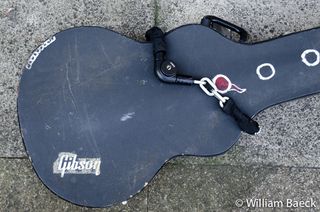
Some days I feel like a multinational corporation in cargo pants. In the past decade, I’ve set up shop four times: twice in the U.S. and twice in England.
As far as running my business is concerned, this was fairly easy; I’m a writer, so my camera and laptop are about my only physical corporate assets. But as part of the process of relocating back and forth between countries, I’ve had to re-prioritize the things I could move with me, liquidate as needed and generally downsize my holdings—all very conglomerate-like.
This means I’ve been through three waves of reallocating my GAS (Guitar Acquisition Syndrome); and aside from a music store that folded with my guitars as well as my guitar money in their possession (a story for another day), it's been a positive experience.
Until I had to move to England, it was easy to justify having lots of guitar stuff as (A) I bought it years ago, (B) I didn’t spend that much buying it in the first place (my entire outlay was probably equivalent to a single nice vacation) and (C) storage wasn’t a problem, as I was a homeowner with a garage that managed to contain everything except the car it was intended for.
Life was good, at least in my own, guitar-centric and highly acquisitive way.
But then 10 years ago, my wife and I had the opportunity to live abroad for a year. That meant significant lifestyle changes.
In short order we rented out our house and I sold off some guitars and two decades' worth of guitar magazines. The only things we brought with us for the year were four suitcases and a cat. When I arrived in London I bought a cheap acoustic and an even cheaper electric, along with a tiny solid-state amp, all found on the local version of Craigslist. When it was time to go back to the U.S., I simply put them on consignment at a guitar store and left.
Get The Pick Newsletter
All the latest guitar news, interviews, lessons, reviews, deals and more, direct to your inbox!
Shrunk to a single sentence, what I learned was that it's more important to play guitars than own them.
Of course, it was easy to say that, as being down to two guitars was just a temporary situation. I figured anyone can live without 17 spare guitars for a year. If Leadbelly could spend more than a decade serving time in Southern chain gangs with just a 12-string Stella, I could manage 12 months in a three-bedroom flat in Maida Vale with two guitars and a Fender Frontman amp.
But what about downsizing for the long-term? This brings me to the most recent time I went through this exercise, in 2012, when we moved from the U.S. back again to England. This round, we didn't know if it was going to be permanent, but we were going to be there for several years at least.
After junking, donating, selling or storing most of our things, the day came when the international moving company picked up our few remaining household essentials that would make their way by boat to England. On the guitar end of things, “essential” included several guitars and two pedals. No amps. I haven’t seen most of my gear since I locked the door at the storage company three years ago. It’s possible I may never see any of it again.
When I had to narrow things down to what I would take with me, what I truly enjoy playing the most, it made for a few unexpected choices. Of course, I took some old Fenders with me. But I left behind a '66 Tele in favor of a Squier '51—worth the merest fraction of the Tele—simply because ultimately I had more fun with the Squier.
I haven't bought anything guitar-related since, other than strings and a micro-tuner. I still don't use an amp. I just plug into an old copy of POD Farm on my laptop and run a line out to the standalone TV speakers. It works fine.
What I've found is that it's more important for me to have a few pieces I really love than a lot of pieces most of which I merely like. So what’s the takeaway on all this? Yeah, I’d still rather have all that gear at hand. But good things have come out of downsizing as well:
More playing time. The hours I now spend with guitars are mainly about playing, not shopping for. Even with the gazillion simulated choices in POD Farm, I don't expend nearly as much time deciding which pedal, guitar and amp combination to use. I just grab the guitar, plug in and play.
More space. Fewer possessions equal less clutter and a happier spouse.
More focus. I concentrate on the things I have, not those I don’t.
More practicality. I hesitate mentioning this on a guitar magazine's website—but it’s been good to give my GAS (and wallet) a rest. It was easy to just keep buying gear for buying’s sake. But downsizing let me take a breather from all that and rethink what gear I really want. It doesn’t mean I won’t want to get any more. But it helps me understand which gear will do the job 99 percent of the time, rather than spending half my time chasing down that final 1 percent.
More quality gear. I know acquiring gear sounds like the opposite of what I just said in the previous paragraph, but it’s not. It actually follows from it. If you have lots of stuff you like but hardly use, why not sell it and buy one quality piece you love and will use a lot? (Hopefully Guitar World's advertisers have read this far and are welcoming me back right now.) I once converted three modern Strats that didn’t suit me into one glorious ’63 Strat that did, and I've never regretted it.
And so it turns out that, as with any corporation, my own downsizing has given me a chance to reflect on and revise my goals. I’ve let go of less-productive instruments and retained only those that work best.
Not surprisingly, in the end I’ve found that the right guitars make the best company.
William Baeck is a writer, photographer and hack guitarist living in London. You can check out his webpage at williambaeck.com and reach him on Facebook and Twitter.
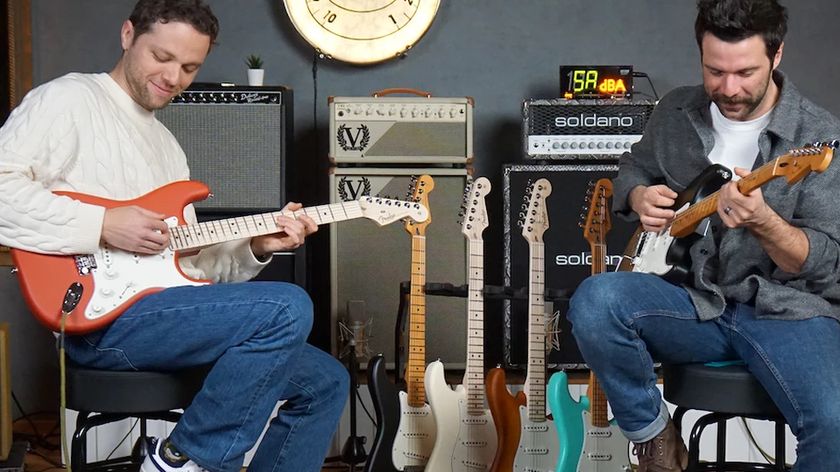
“Satin Stratocaster dreams”: Fender and Thomann have produced two new exclusive Stratocaster lines – and their prices rival existing US and Mexico-made models
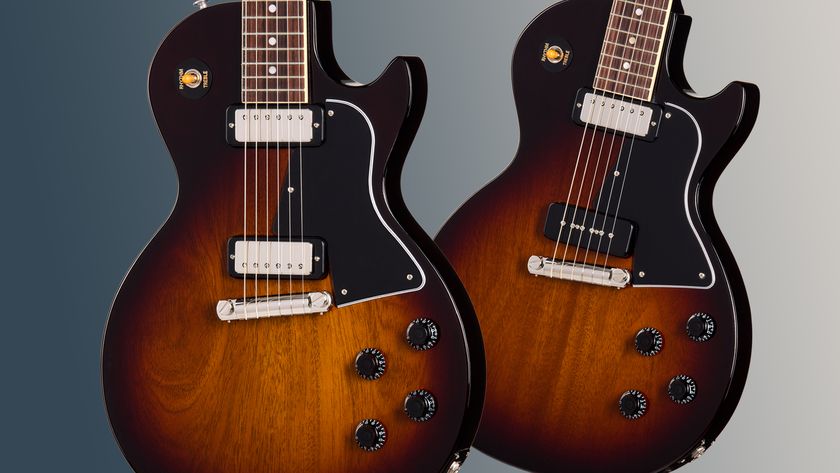
“A new take on the classic”: Gibson gives its Les Paul Special an ultra-rare pickup overhaul with new Mini Humbucker models
